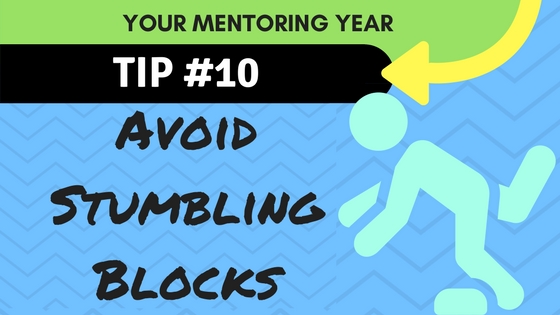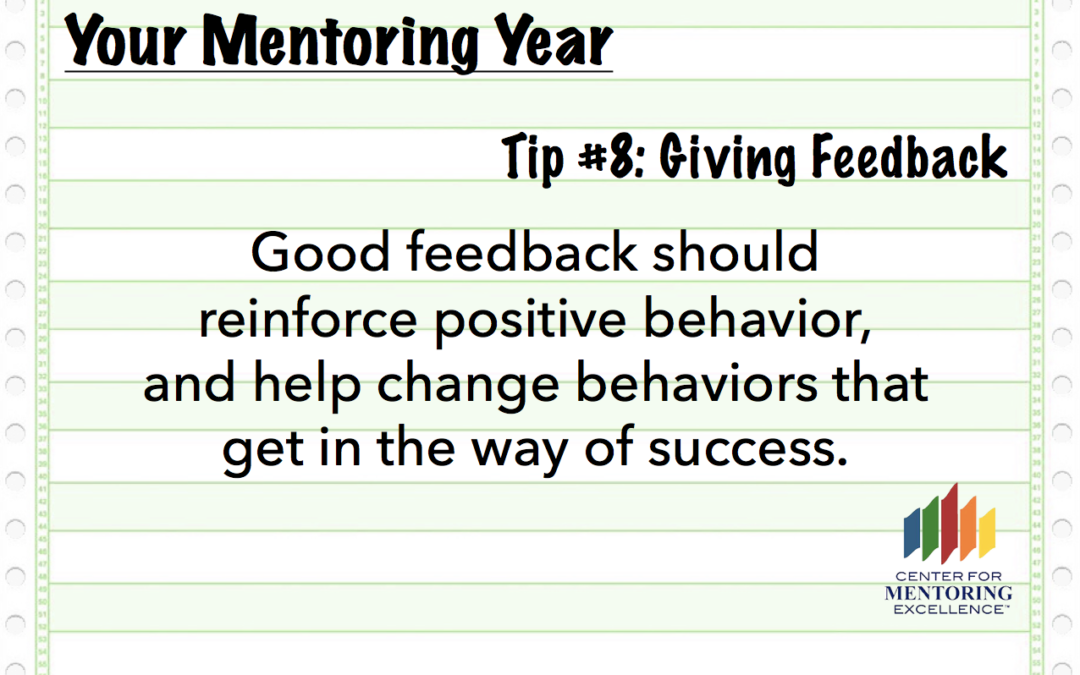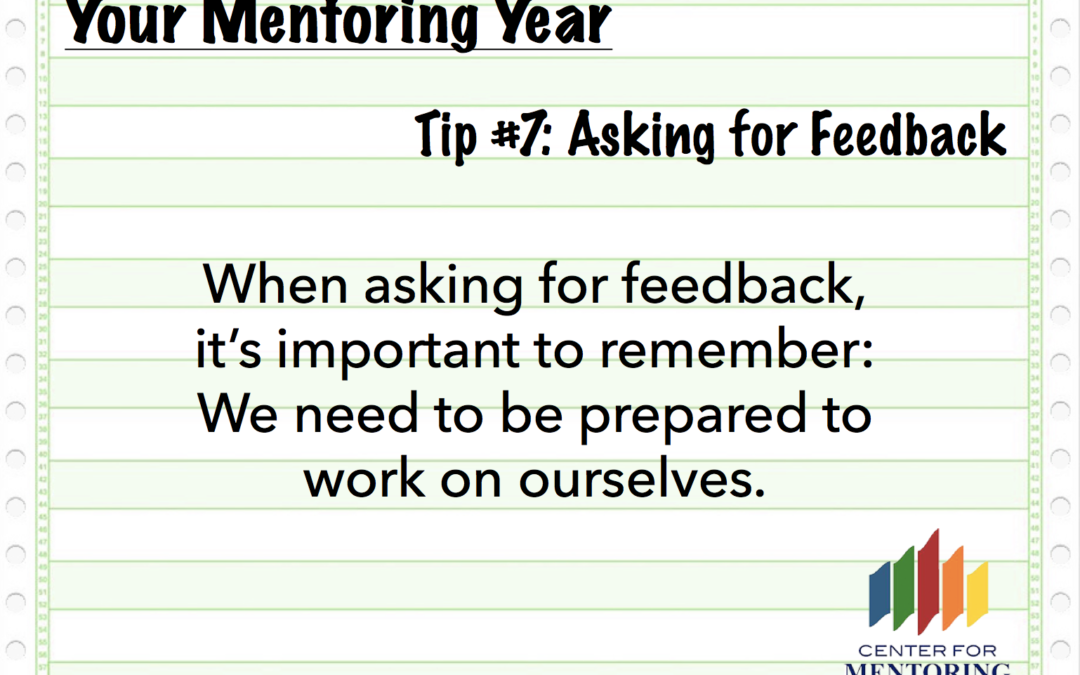by Center for Mentoring Excellence | Jan 25, 2018 | Advice for Leaders, Assumption Hunting, Checking Out Assumptions, Facilitating Learning, Goal Setting Conversation, Group Mentoring, Growth and Development, Making Mentoring Work For You, Mentoring Communication, Mentoring Questions, Mentoring Relationships, Mentoring Training, Supporting Mentors and Mentees

One of the biggest stumbling blocks for mentoring pairs is staying on track over the course of the year.
To make sure you avoid this potential trap, make sure you determine how to manage your mentoring time:
How often and how long will you meet?
How will you handle and reschedule cancelled meetings? Consider using an agenda, preparation, and journal as vehicles for maximizing learning. Your schedule holds and organizes your most valuable asset – your time.
For new mentor/mentee relationships, the development of an agreed-upon framework will not only set expectations, but also support focused meeting times so you both get the most out of your time together.
For more experienced pairs, referring back to the framework (or creating a new one) is a great way to a mentoring relationship back on track.
Ready for more? Review the Mentor’s Guide: Facilitating Effective Learning Relationships for more support, insight and tools.

by Center for Mentoring Excellence | Nov 1, 2017 | Facilitating Learning, Growth and Development, Making Mentoring Work For You, Mentoring Communication, Mentoring Relationships, Mentoring Training, Supporting Mentors and Mentees
When we hear the word “feedback,” most of us assume that something is wrong, that we require improvement or that we are going to be criticized.
So, when a mentor says, “Can I give you some feedback?” we brace ourselves. Maybe at best, we approach the message cautiously.
But feedback shouldn’t be feared! Good feedback should identify and reinforce behaviors that contribute positively, while altering behaviors that get in the way. When it comes to feedback, mentees seek confirmation that they are meeting their mentor’s expectations — and they want them to acknowledge it! Starting with praise, and then following with something specific to work on, is a great way to encourage mentees and make them more receptive to feedback.
Here are 6 tips for giving feedback to your mentee.
- Talk about the value of feedback. Let your mentee know to expect it.
- Provide frequent feedback. This ensures your feedback is timely and closely related to the events it refers to.
- Stay balanced. Err on the side of caution. Offer more positive comments than critical comments.
- Be sincere. If positive feedback is forced, it loses value and undermines your credibility.
- Keep it two-way. Feedback should be a conversation, not a lecture. Make sure your mentee is engaged in the conversation. Facilitate a conversation that ensures your mentee understands your input and is motivated to act on your feedback.
- Limit feedback to one or two items your mentee can do something about. Don’t overwhelm them!
At the end of the day, feedback is critical to any mentoring relationship’s success. Making sure mentors know how to give good feedback and mentees know how to receive it are two necessary components of success.
What feedback tips do you have? We’d love your feedback!

by Center for Mentoring Excellence | Oct 12, 2017 | Goal Setting Conversation, Growth and Development, Making Mentoring Work For You, Mentoring Communication, Mentoring Questions, Mentoring Relationships, Mentoring Training, Supporting Mentors and Mentees
Imagine this scenario:
You are hidden in the cubicle next to your supervisor when a colleague drops by to ask her about your performance and contribution to her team. In your dream scenario, your supervisor raves about your work ethic, your analytic skills, your strong relationships with co-workers and members of the leadership team.
That, of course, is what you would like to hear! But in reality, do you have a real handle on what others would say about you? Do you know how your mentor might answer that question?
Managers wish employees would come to them to ask how are they are doing, and what specific areas they should work on. Mentors feel the same way. It’s a lot easier and more comfortable to provide feedback when a mentee seeks it out and is open to working on him or herself. While we all seek positive feedback, we also need to be open to hearing a frank assessment of what holds us back or gets in our way. And, most importantly, we need to be prepared to work on ourselves once an area has been identified.
Here are 5 tips in asking for feedback from your mentoring partner:
- Be clear and specific about what feedback you’re looking for. First, start on a positive note by asking about areas of strength. Then, ask about two areas your mentor feels you need to work on. (Two keeps it limited and doable.)
- Check for understanding (especially around constructive feedback) without getting defensive. If you are unaware of the issues your mentor is raising, ask for an example of where you fell short (again, without being defensive or aggressive). Make sure you agree on what behaviors would help correct deficiencies.
- End the conversation on a positive note. Thank your mentoring partner for their feedback.
- Take time to reflect on what you heard. Think about how the feedback you received might be impacting other areas of your personal and professional life. Set aside any negative feelings you have about what you heard by remembering that this feedback was designed to help you grow and develop.
- Address the areas that have been raised by taking action. Become more conscious about your behaviors and how they affect others and your work. Check in (but not too soon) with your mentor to determine if what you are doing differently is making a difference.
How do you like to ask for feedback?
by Center for Mentoring Excellence | Nov 18, 2011 | Uncategorized
One of the most important benefits of a mentoring partnership is the candid feedback that occurs when both parties engage in it with each other.
Getting honest feedback from peers and supervisors in a work environment is challenging. The pervasive concerns are always about how it will be taken, fear of damaging the relationship, and the potential for resistance. If one or more parties tend to be conflict averse, it makes it even less likely that they will engage in candid feedback. In mentoring, just the opposite occurs. Mentees look to their mentors as a trusted source of candid feedback.
Mentees appreciate receiving feedback because they know it is given in good faith, with the intention of improving their performance and supporting their long-term development and career success. Mentors and mentees who commit to building their own competency and confidence in the feedback process report more positive outcomes than those who do not.
When Joe was assigned Henri as a mentor, he expected to get feedback about how he was doing and how upper management perceived him. Despite asking Henri several times about how thought things were going and what he was hearing, all Joe ever heard is, “everything’s fine.” Joe found it hard to believe that there wasn’t something to work on and began to suspect that there really was an underlying problem. Because Henri wasn’t offering specifics, Joe started second-guessing everything he was hearing from Henri. He began to dread mentoring meetings and rarely invested energy in their conversations.
What went wrong?
Clearly, absence of candid conversation and a clear feedback process undermined the trust in this mentoring partnership.
What can you do?
1. Start your relationship with the expectation that feedback will be part of the process.
2. Create ground rules and agreements about when, how often, and what process is best suited to your relationship.
3. Tell the truth; develop a habit of straight talk and don’t let either side stray.
4. Balance candor with compassion, but tell it like you see it.
5. Encourage your mentee to be candid. It is hard for mentees, especially new hires and those in the lower tiers of the organization, to speak up.
6. Be positive. Offer positive feedback along with constructive comments.
7. Show appreciation even when you receive negative feedback. Remember: it requires courage to offer negative feedback.
8. Practice difficult conversations.
9. Master behaviors and processes that can help you become more effective at constructive feedback.
10. Focus on what can be changed.
by Center for Mentoring Excellence | Oct 3, 2011 | Uncategorized
From Our Mentoring Mailbag…. (more…)





